Morgan Brayton answers the door to the home she shares with her wife and 13-year-old son with Bunbury, her part-bulldog part-terrier rescue dog, at her side.
We end up sitting in a room that is home to six or so kittens, who, like Bunbury, are rescues, and who crawl all over us and gnaw cutely on my notebook.
I’m there to interview the actor, comedian and host about her upcoming one-woman show Give It Up, premiering at the Vancouver Fringe Festival on Sept 8, 2016.
Brayton is a cast member in The Lady Show and has had two previous solo shows at the Fringe Fest, Girls Like Me and Raccoonery! for which she won a Critic’s Choice Award and was a Canadian Comedy Award nominee. She has also appeared in TV and film roles, as an actor in 21 Jump Street, Hard Core Logo and Scooby Doo, and continues to audition for roles.
“When I was 18 and I was auditioning to play cashier number two against 34 other people that seemed like a reasonable thing to do,” she says.
Like many actors, she says she’s continuously been fuelled by the possibility that her next gig will be the big break that changes everything. Lately, however, she says she’s been reconciling that impetus with the reality of being a film and TV actor.
That is the focus of Give It Up. Written and performed by Brayton and directed by Shawn Macdonald, the show was originally intended to be a sketch show starring a collection of characters she’s created over the past year. Then she realized they all shared a theme.
“They were all characters who in some way or another were struggling with essentially the idea of their lives not quite turning out the way they had planned,” she says. “I thought, I see what my psyche was doing there.”
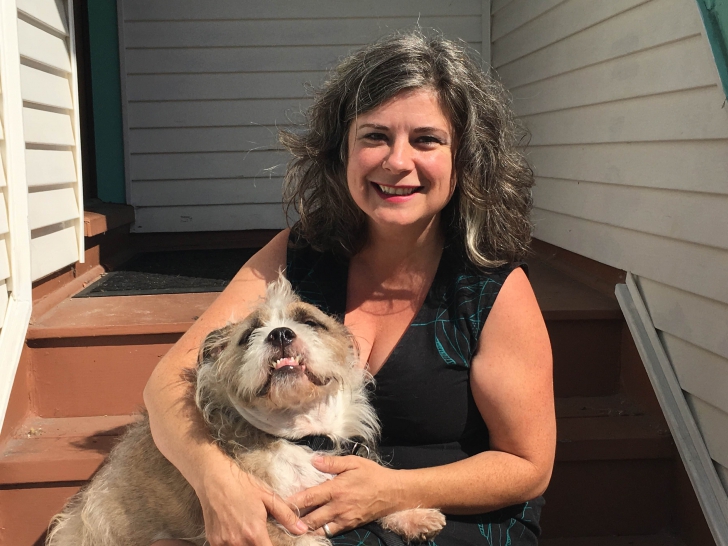
The show weaves together Brayton’s 27-year career in film and TV, its highs and lows, with portrayals of her signature “weird and wacky” characters.
She has a love-hate relationship with film and TV — an industry she’s quit and returned to multiple times — and is now, at 46 years old, looking at whether the dream is worth continuing to pursue.
“It’s kind of like being in a shitty relationship that you should have gotten out of years ago and you’re not sure what you’re still doing there.”
Brayton was raised as an only child in Victoria, BC, and knew from the get-go that she wanted to perform.
“I used to line up my stuffed animals and do shows for them, shows for my parents, my mom snuck me into acting lessons that you were supposed to be 10 and I was 9 and we lied about my age and I was always so afraid I was going to get caught,” she says.
Growing up, she recalls, she had a scrapbook with a page for each year and a template with two lists, one for boys and one for girls. The header read: “When I grow up I want to be…”
“The one for girls was like nurse, mother, teacher, and at the bottom it had a blank line where you could write your own career choice in, and my mother would write on every page — Morgan wants to be a star.”
She would watch Carol Burnett, Saturday Night Live and lots of British comedy.
“That was always really my jam,” she says.
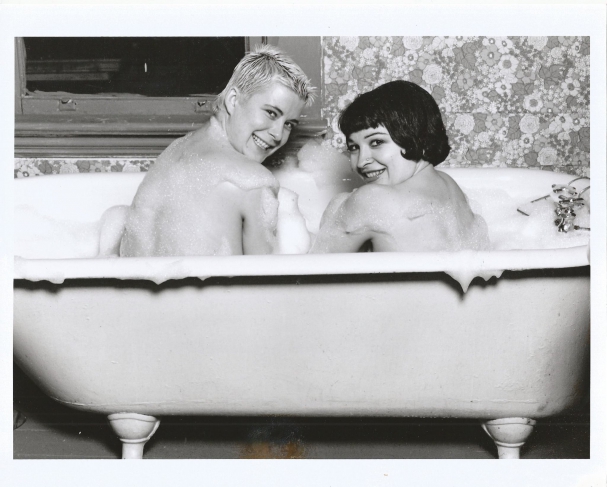
Inspired, she would create and perform characters, act out scenes and monologues to amuse herself and anyone who would pay attention to her — experiences she weaves into Give It Up.
“I have a screen on stage that I change behind and morph into these characters and they come out of nowhere at you, like they did to my friends and family when I was a kid,” she says.
She used to imagine herself on the cover of TigerBeat magazine, married to Scott Baio, although she admits that taking a different path was probably a blessing in disguise.
“I think he’s probably okay with not being married to me as well,” she says. “He’s probably like oh, that lesbian comedian wanted to marry me? I think I dodged a bullet there.”
Brayton moved to Vancouver when she was 18 to pursue a career as an actor in film and TV, landing her first job as a troubled teen on the Canadian TV show Neon Rider.
“When the counsellor said it was time for everybody to go to bed my character said, ‘we’re too jacked up to sleep’ — that was my big start. It was awesome.”
Drawn to acting for its potential to reach audiences, she says her roles haven’t always fulfilled that need.
“That’s why any actor does it. It’s that opportunity, as all art is, to connect us humans and make a difference somehow.”
She discovered sketch comedy in her mid-20s, joining the all-female comedy troupes Girl Parts in 1995, and later, the 30 Helens, who she performed with for six years.
“It was a separate thing that I fell into that became the thing that fuelled me and became the thing that inspired me and made me happy,” she says. “Comedy is the place that feels like home.”
Once she found comedy, she stuck with it — it became a source of validation and ironically enough, she says, the artistic satisfaction she received in comedy kept her going in the often draining TV and film game.
Her comedy, she feels, has two modes: feminist or absurd. Though they sometimes cross over, like in a recent sketch written with Katie Ellen Humphries for the Lady Show about a feminist comedy robot.
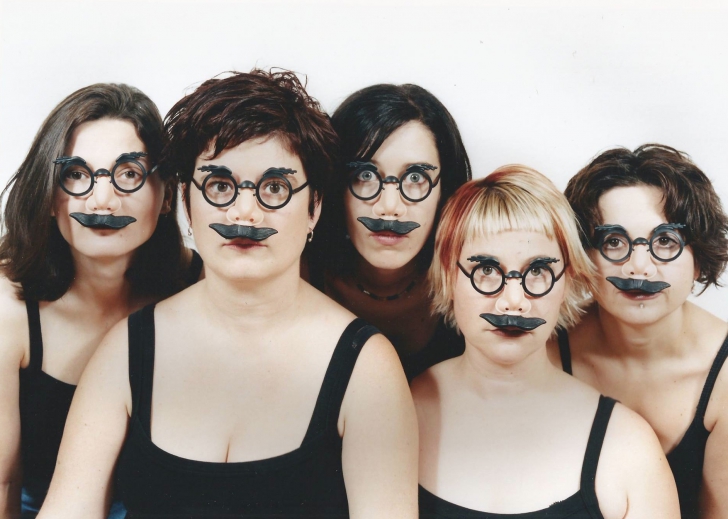
The characters she creates are sometimes amalgamations of people she’s met and are often parts of her, like anger gnome, a character she created.
“He was me exaggerated, I just sort of used to be this much angrier little beast.”
These days, her favourite character to play is Colleen, of Colleens Canine Academy, which has her dancing with an invisible dog and who once dreamed of being a member of the BC Lions Felions.
“She just gives no fucks of what anyone thinks of her.”
One character, Roxanne De La Couer in Give It Up, is a failed model. It’s a joke based on her own youth, when she attended a modelling academy in Victoria.
“It was essentially a glorified charm school to rip off parents in Victoria in the ’70s and ’80s,” she says.
An academy teacher told her she looked like Brooke Shields — “which is all I needed to embrace that wholeheartedly.”
At 11, she covered her face in makeup — blue and green eye shadow, pink blush, red lip, and pencilled in brows — and recalls taking the bus home, when one woman looked at her said, “oh my god.”
“When I told the story later to everyone, I told everyone she had said, ‘oh my god she looks just like Brooke Shields,” she says, laughing.
Her over-the-top characters are one of the areas she feels most comfortable, a trait that hasn’t always meshed well with the more conventional TV and film world.
“There’s not a lot of film and TV directors saying let’s get that woman who played anger gnome,” she jokes. “Most of my career has been spent at auditions hearing the words — okay, try it again, but smaller.”
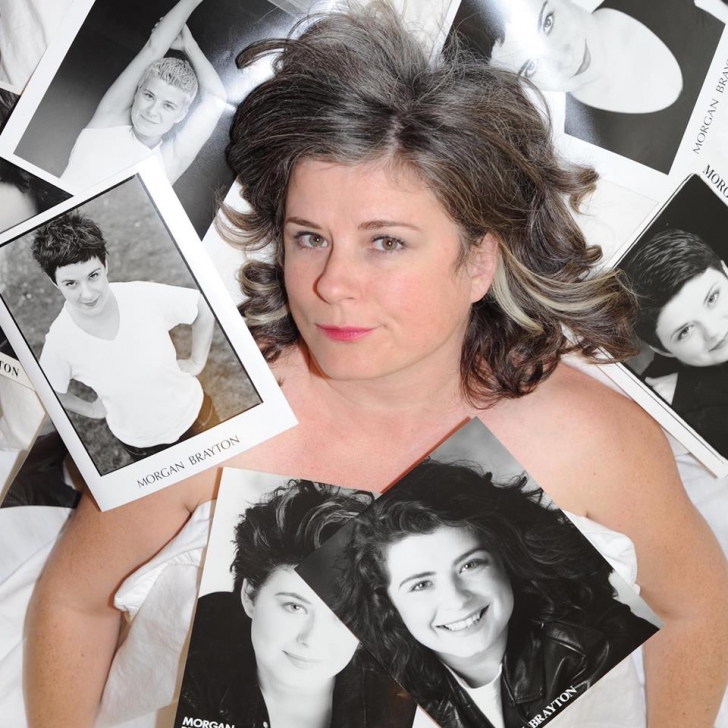
Representation in comedy has changed since Brayton first got into sketch comedy.
“We were filling a void, there was something we were providing that was missing,” she says.
There’s been a increase in the number of female comedians, she says, but making comedy with women still appeals to her — and she’s quick to point out it isn’t comedy just for women.
“Different comedians come at it from different perspectives and have different reasons for what they do and like anybody — who you are informs your work.”
Recently, Brayton was asked why sexism hadn’t yet defeated her.
“It’s the opposite. I think sexism as a comedian fuels me. It’s a driving force to always find a way to comment on it that makes people laugh but makes them think as well.”
A main purpose of comedy, she says, has been to redress power imbalances.
“Comedy is a way of taking power when we have little.”
In that sense, she says her identity has been useful in the comedy world.
“Being a woman, and being queer, and not being 105 pounds, has been a benefit,” she says. “Comedians are never the in-crowd — that’s the whole point of being a comedian is that outsider perspective. . . As a woman in a patriarchal society, as a queer women surrounded by heteronormativity, that’s my outsider perspective.”
It may still be disproportionately dudes, she says, but having come to feminism during the era of Riot Girl, and the 1990s movement of DIY art and politics, has shaped her approach.
“I don’t like this, I’m going to do something different, something better.”
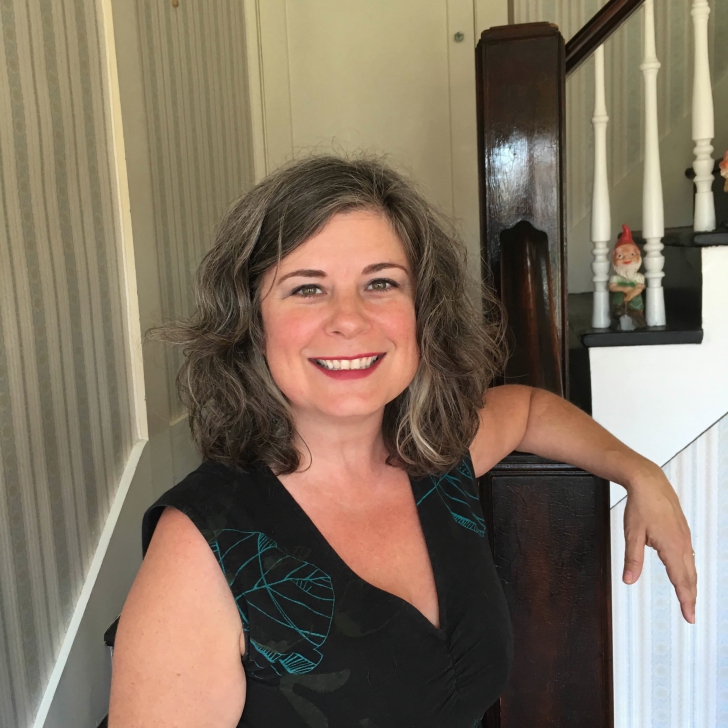
One way Brayton has found to straddle the two worlds of comedy and TV and film is through her OUTtv panel-style talk show, Morgan Brayton & Other People. It’s kind of like The View, she says, but all the women are comedians and they drink cocktails while discussing things like booze, camping, being teenagers and bucket lists.
“It’s funny and emotional at times and makes you think, and we argue about stuff we don’t agree on,” she says.
It’s a rare opportunity she’s embraced, to play herself and be funny about topics she’s passionate about.
Playing herself is core to the roles she plays in Give It Up as well, which she admits puts her in a more vulnerable place than she has been in before on stage.
“I’m terrified,” she says. “It’s not just me in a wig and a pair of weird glasses doing this character that may or may not be rooted in me. . . This is just me, talking about success and about failure and my dreams and disappointments.”
No one’s life turns out the way they think, she says, and failure and re-evaluating dreams is something that feels real for a lot of people in their forties.
“It ain’t over yet, but I’m not going to be on Saturday Night Live, I’m probably never even going to be on This Hour Has 22 Minutes, which is a bit of a rough pill to swallow,” she says.
“You’ll have to see the show to see if there’s an answer to whether or not I should give it up.”
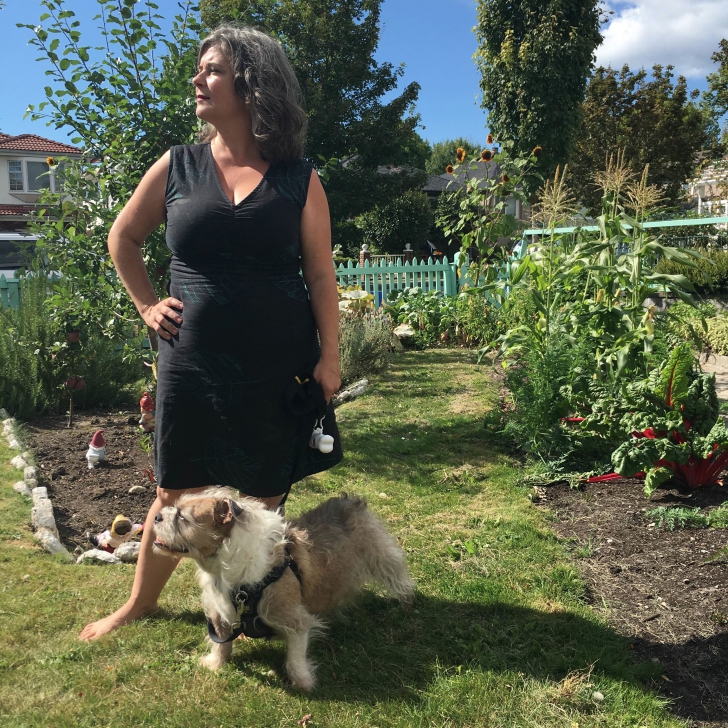
We head outside to take some photos with Bunbury (who has his own Instagram account, @thisisbunbury), and Brayton explains how her wife, a photographer and account manager with a software company, and her son had both wanted a dog for years and she finally gave in last October after being a cat person her whole life.
She met her wife 11 years ago.
“We are very different and have very different brains. . . The only person more confused about why I’m still doing this is my wife.”
Along with Bunbury, they have four cats and a revolving door of foster cats from the Vancouver Orphan Kitten Rescue Association.
“If there is such a thing as what we’re supposed to be doing on this planet, comedy is where I go, ‘oh, I’m contributing.’ That and cats. Rescuing cats and making people laugh — the Morgan Brayton story.”
Give It Up
Thursday, Sept 8 to Sunday, Sept 18, 2016 at various times
The Cultch, 1895 Venables St, Vancouver
Tickets $11 plus $5 Fringe Festival membership at tickets.vancouverfringe.com
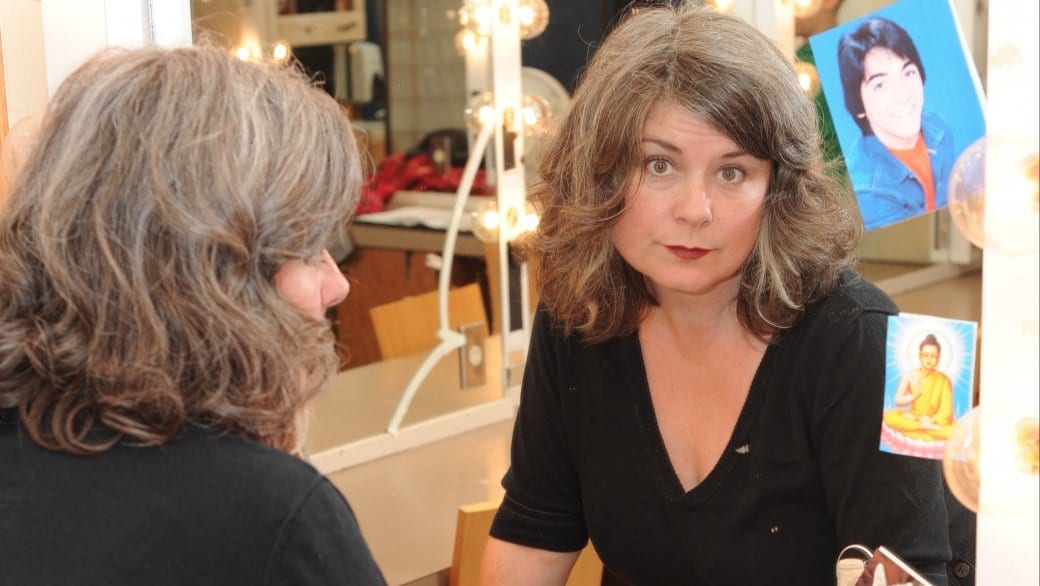
 Why you can trust Xtra
Why you can trust Xtra


